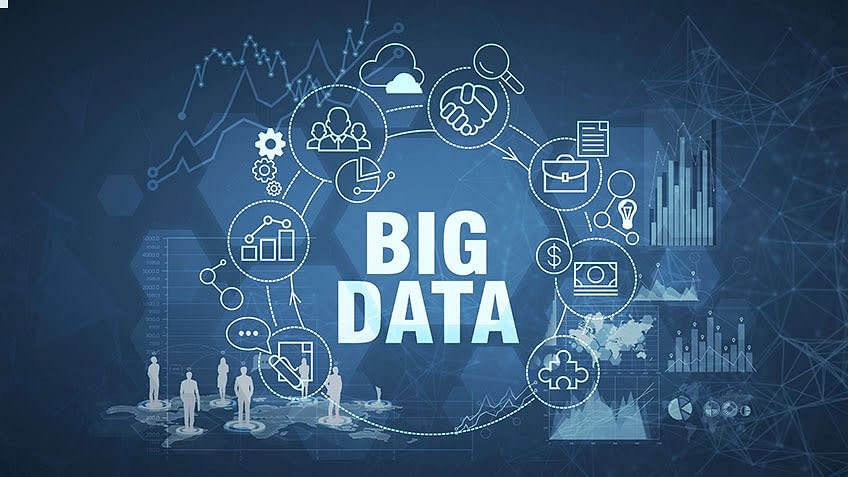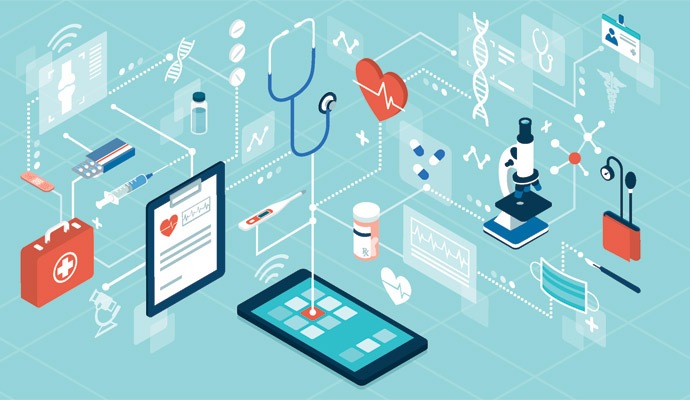2nd Thought Cloud: Computers and Me
It is fascinating to think how data in general seems to be evident in our lives - from the streaming music on Spotify, utilizing GPS with mobile phones, and even when it comes to online shopping. We hardly even notice many of the developments since they are so subtle and practical. Without its some sort of involvement in our lives, it is becoming more and more difficult to function in normal society. Indeed, data is prevalent in today's world, and this is not an overstatement. In this entry, I will be sharing my opinions regarding the provided video materials and dwelling more on the impact of big data - especially in the medical field.
💭 The Reality of Big Data as Discussed in the Video
The video uploaded by Augustine (2016) titled The Human Face of Big Data emphasizes how big data brought drastic changes in the lives of many people. Many speakers also highlighted the different uses of big data and its application in real life.
Big data, as defined by SAS, is a term that describes large, hard-to-manage volumes of data – both structured and unstructured – that inundate businesses on a day-to-day basis. Basically, big data is a vast collection of information about a certain subject. In the medical field, the quick advancement of medical technology and software has opened the door for big data to have a significant impact on everyone involved. Now, if big data is collected and utilized accordingly, it will be a big help for the whole healthcare team to make better judgments regarding the treatments and services for their patients. For instance, clinicians with access to huge data sets may be able to recognize the precursors of a dangerous sickness before it manifests.
One fascinating breakthrough in big data as discussed in the video uploaded by Augustine (2016) titled The Human Face of Big Data - shows how Dr. McGregor and her team analyze the data from thousands of heartbeats in NICU and discovered how new fluctuations in an infant’s heart can predict the onset of life-threatening infections long before physical symptoms appeared. Specifically, her team was able to discover how the subtle changes in an infant’s heart – when unwell – may indicate a loss in its ability to react by speeding up and slowing down.
Basically, what big data do is improve patients’ access to quality healthcare by enabling healthcare professionals to predict and solve medical issues earlier and faster than before. To conclude, the video made me realize how most data seem to be meaningless until someone adds an interpretation to it. This only shows that big data, when not utilized properly, may become a large issue since it indicates that there’s little optimization with the present technologies.
💭 Big Data as a Solution
As highlighted by one of the speakers, everyone contributes to big data unknowingly. We always assume that a Google search is a one-way process in which we enter the information and then extract it. One thing we don't really consider is that by performing the search, we are already providing information. Just by thinking about this, there is no lie that big data can help in solving problems that mankind has right now.
Specifically, in the medical field, big data makes "health care" attainable. It was utilized by doctors to assist in the diagnosis of illnesses and medical problems in patients as well as by medical researchers to find disease indicators and risk factors. Additionally, healthcare institutions and governmental organizations receive up-to-date information about infectious disease threats or outbreaks via a combination of data from electronic health records, social media platforms, the web, and other sources. With this, potential problems to arise in healthcare will be addressed and resolved in an instant.
💭 The Future of Big Data in Global Health
In several industries, data gathering and analysis have dramatically increased over the past ten years. Despite a sharp increase in data creation, there hasn't been much advancement in data analysis and application in the health industry. Hopefully, in the near future, informatics nurse specialists and other members of the healthcare team will work hand in hand to elevate the influence of informatics in practice. This will all-in-all make the actual "health care" - a practice that addresses ensuring that people work towards being healthy and take the right steps not to fall sick or develop a disease - a reality and norm.
References:
Augustine. (2016, March 2). The Human Face of Big Data [Video]. YouTube. https://www.youtube.com/watch?v=4VeITe6EJDUBotelho, B. & Bigelow, S. (n.d.) Definition: Big Data. TechTarget. Retrieved from https://www.techtarget.com/searchdatamanagement/definition/big-data
SAS Insights (n.d.) Big Data: What it is and why it matters. Retrieved from https://www.sas.com/en_ph/insights/big-data/what-is-big-data.html#:~:text=Big%20data%20refers%20to%20data,around%20for%20a%20long%20time.



Comments
Post a Comment